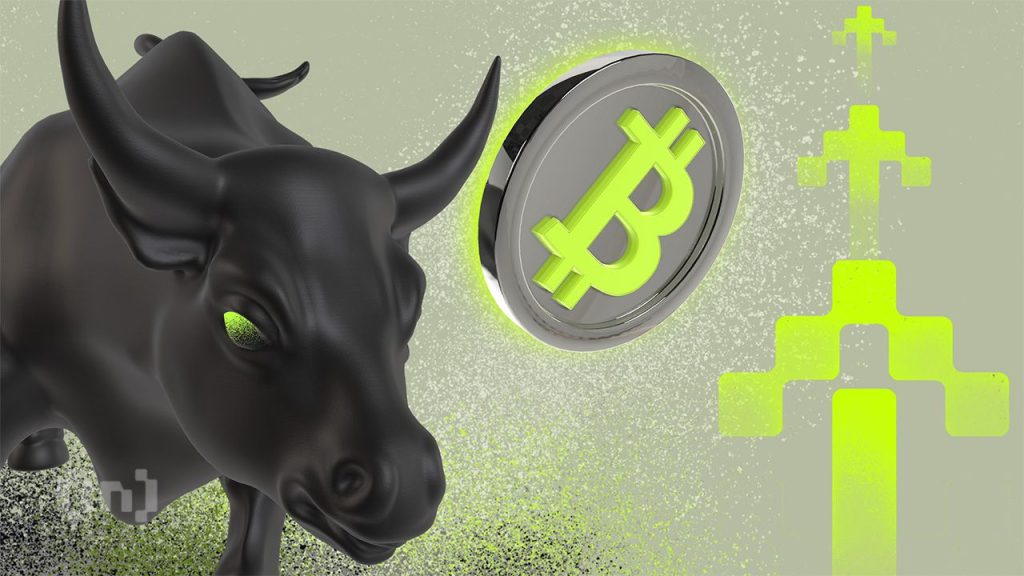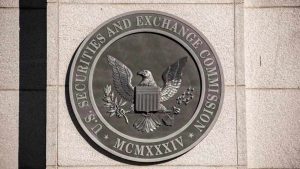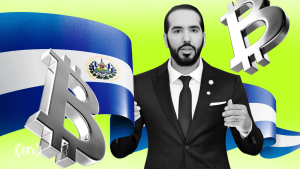More Banks Will Fail Without Crypto, Says Tim Draper

Amid the recent banking turmoil, BeInCrypto talked to renowned investor Tim Draper. We discussed how Bitcoin can prosper from this financial crisis, and what makes a weak leader.
The recent banking crisis has led to growing distrust in once-solid banks. The acquisition of Credit Suisse by UBS has added to this climate of uncertainty and distrust of the banking system. There have been significant withdrawals from Silicon Valley Bank, First Republic Bank, and Deutsche Bank has come under scrutiny.
Tim Draper, a well-known venture capitalist and entrepreneur, and one of the biggest personalities on Wall Street, takes the view that there is a simple way to safeguard against the dangers.
“I have recommended to all CFOs as a hedge against bank or government failures to have at least two payrolls worth of Bitcoin to avoid catastrophic failure,” Draper told BeInCrypto. “I continue to advocate Bitcoin as a hedge against the current antiquated and over-regulated banking system and as a hedge against bad governments with too many regulations.”
In the recent flight to safety, depositors have moved assets to “too big to fail” banks as they have questioned the viability of smaller institutions. Unlike traditional banks, which have intermediaries, DeFi can provide financial services to anyone with an internet connection, with recorded transactions on a public ledger. In recent weeks, some people have particularly appreciated the benefit of increased accountability.
Draper told BeInCrypto that this will only accelerate the adoption of crypto as an alternative to the traditional banking system.
“I think the SVB failure was a wake-up call for the people who have been reluctant to buy Bitcoin,” he said. “Now, it is mission-critical to keep the trains on the tracks.”
Crypto Is Inevitable
Crypto adoption rates and motivations vary widely between developed and underdeveloped countries and those with stable and unstable currencies. According to a report by the United Nations, Venezuela ranked third among the countries with the most cryptocurrency adoption. Russia and Ukraine beat it in the league tables.
“Bitcoin is loved by the people from countries with weak currencies,” said Draper. “It gives the people a chance to build and store value without the risk of [the] government over-printing and devaluing their work. The US seems to be heading down that inflationary, high-interest-rate path, and I believe that more and more people will be using Bitcoin to store value now.”
“Banking crises can only really be prevented by allowing the banks to accept and operate in Bitcoin. Otherwise, banks will be operating with a smaller and smaller market as people transition to the better technology,” he added.
Cryptocurrencies have recently come under fire for their use to evade sanctions. But Draper believes the effort to stop them is futile. Much like King Canute trying to stop the tides from rolling in. “We are going through an anthropological leap forward with Bitcoin,” he said. “The landscape is shifting. During shifting landscapes, great leaders embrace the change. Weak leaders try to resist the wave. Sanctions are porous. Sanctioned countries will use the tools they can to get around them.”
Embracing Change
Draper’s thesis on economics is equally libertarian—not unlike many crypto enthusiasts. But in this interview, Draper was unafraid to take the philosophy to its logical endpoint. It’s a view that is deeply entwined with the individualism and enterprise-first values that crypto enables. “I have noticed that great leaders trust their people and set them free,” he explained. “That trust and freedom builds great economies, encourages rapid adoption of new and improved products and services. [It] creates a happy, wealthy society. Weak leaders control and regulate their people, creating a fearful, unproductive, impoverished society.”
The current banking crisis seems to have fizzled out, for now. However, Draper is convinced that without regulators bringing crypto into the tent, there is more turbulence to come. “If regulators persist in keeping banks out of the lucrative crypto market, more banks will fail, as more and more of the economy goes crypto. If they embrace the change, banks will be able to adapt, and they will thrive in the new Bitcoin economy.”
Leave It to the Market
Draper’s relentless enthusiasm for the crypto market will inevitably be a welcome tonic to some investors. 2022 was a volatile year for cryptocurrency, with values dropping over 60%. A new study of over 1,200 Americans found that awareness of cryptocurrency has increased by 9% since 2022, but ownership rates dropped from 33% to 30%. Only 1 in 3 owners turned a profit that year. Considering the choppy water of the recent past, what is the best way to ensure the future health of crypto?
“The market will ultimately arbitrate the best outcome,” said Draper. “FTX was a clear signal that centralized authority of any money supply is not as good as a decentralized system like the Bitcoin blockchain.”
Could he share examples of cryptocurrencies providing financial stability and resilience during the recent crisis? “I know that companies in the Bitcoin world that held their fiat in SVB but also held Bitcoin were not in panic mode. Since they knew they could always make payroll in Bitcoin,” Draper reflected.
Disclaimer
Following the Trust Project guidelines, this feature article presents opinions and perspectives from industry experts or individuals. BeInCrypto is dedicated to transparent reporting, but the views expressed in this article do not necessarily reflect those of BeInCrypto or its staff. Readers should verify information independently and consult with a professional before making decisions based on this content.













